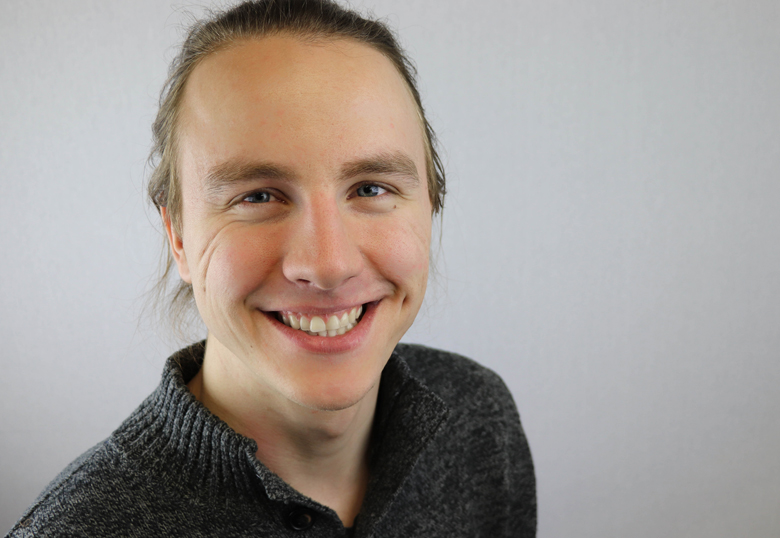It is never too late to make decisions that change your career path, even if the goal is almost entirely different than what you initially set out for yourself.
Kai Fender (BSc ’16) is a shining example of this, recognizing his degree didn’t quite match what he’d decided to do with his life. Despite having nurtured a passion for mathematics since grade school, Fender realized his future was better suited to a medical career than an academic career in math. Now on his way to taking the Medical College Admission Test (MCAT) and applying to medical school, Fender is back at the U of L taking university science courses relevant to medicine.

For as long as he can remember, math has been Fender’s favourite subject.
“I loved the abstract, logical thinking involved in math, but I always felt like grade school was just laying the foundation for mathematical thinking, teaching students recipes to solve certain problems instead of showing them why the recipes work and how to come up with their own recipes,” he says. “I really wanted to move past laying the foundation and dive into more advanced mathematics, and I figured studying math at university would be a great way to do so.”
Near the tail end of his high school career, Fender discovered a fascination with physics and eventually decided that these two areas would be his focus in university. He subsequently worked through his undergraduate degree with a level of uncertainty about what he would do after graduation.
“I knew I loved solving puzzles in math and physics, I knew I loved learning, and I knew I really enjoyed helping my classmates with math and physics work. Given all of this, I had an inkling I might like to pursue an academic career related to math or physics, but I wasn’t certain,” he says.
Working at math and statistics help sessions provided a dynamic and challenging environment that gave Fender a chance to embrace his passion for math while helping to improve the university experience for others. He valued these one-on-one interactions with his peers, the chance to build relationships, and the opportunity to help people in need. Toward the end of his degree, these experiences ultimately inspired Fender to reconsider a career choice in academia and instead consider becoming a physician. As such, he could also likely choose to stay and work in southern Alberta, close to family.
The only obstacle for Fender was that he was missing courses relevant to those tested on the MCAT. He decided to continue his studies in chemistry, biochemistry and biology at the U of L while remaining active and passionate in his extra-curricular commitments with mathematics.
Fender looks to finish his course work at the U of L, apply to medical school in Canada and ultimately practice as a doctor in southern Alberta. Even though he has spent nearly half a decade studying mathematics and physics in university, he does not feel that his time was wasted.
“I’ll likely never face complex mathematical or physical questions in a medical career, but studying math and physics was valuable for other reasons,” he says. “By spending years solving problems in math and physics, I had an excellent opportunity to practice thinking creatively to come up with solutions to problems I’d never seen before using methods I’d never learned before.”
Fender admits that it was intimidating to change career paths, but realizes the time he invested in education towards a career change pales in comparison to the time he would ultimately spend working in that career. He advises others who might be facing the same circumstance to not look at time spent studying something else as time wasted.
“Think about what you gained from your initial interests, look at them for what they are: a learning experience that helped expand your worldview and made you a more well-rounded person,” says Fender. “It's good to keep an eye on the future, but don't forget to make the most of the present. You're in university; have fun, learn to problem solve, expand your worldview, and get involved with whatever interests you!”
